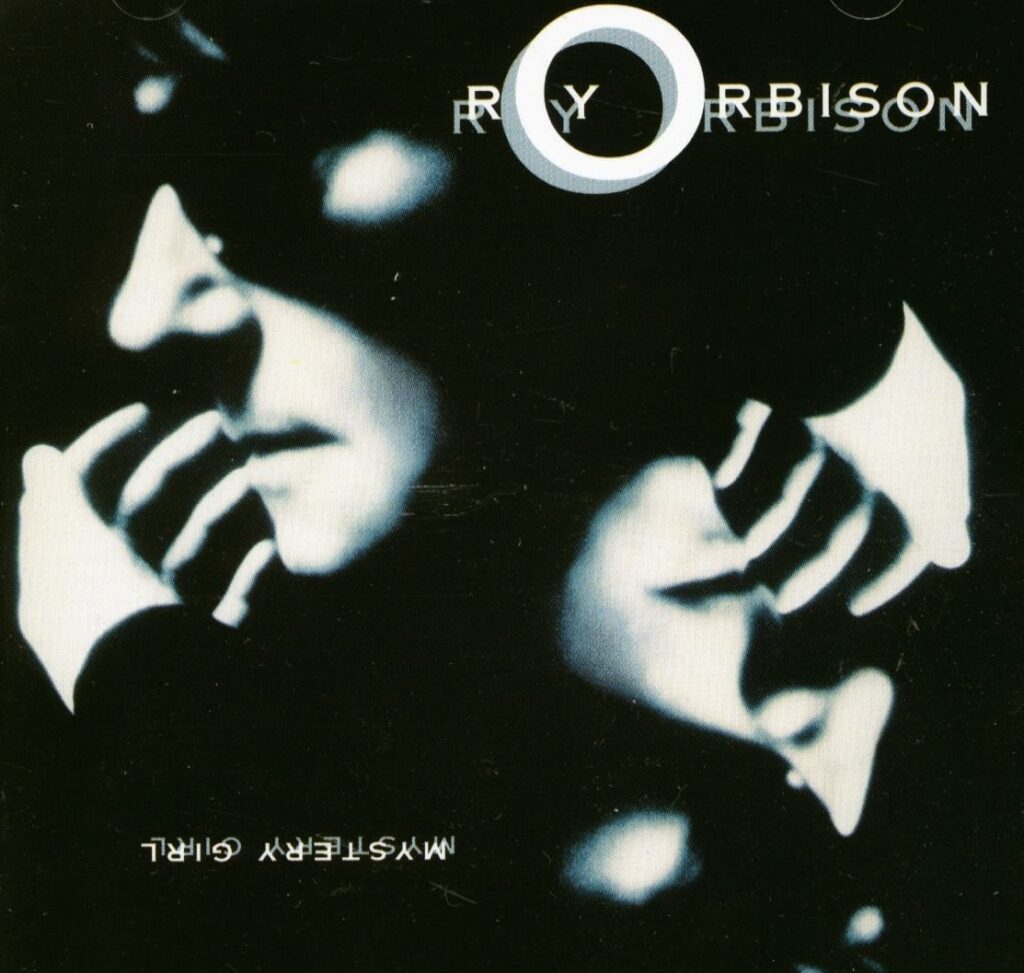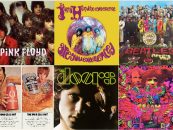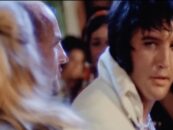 When Roy Orbison had a hit with “Oh, Pretty Woman” in 1964, he was already recognized as one of the most spectacular singers in rock, comparable only to Elvis Presley in his ability to project highly emotional, soaring ballads in a style that was almost operatic.
When Roy Orbison had a hit with “Oh, Pretty Woman” in 1964, he was already recognized as one of the most spectacular singers in rock, comparable only to Elvis Presley in his ability to project highly emotional, soaring ballads in a style that was almost operatic.
“Oh, Pretty Woman” rocked harder than the majestic hits “Only the Lonely,” “Running Scared,” “Crying,” “In Dreams,” “Blue Bayou” and “It’s Over,” but it proved Orbison’s last Billboard top 20 placing for nearly 25 years.
Amazingly, the last year of Orbison’s life—he died at the age of 52 on Dec. 6, 1988—was one of his most creative. He shared the international success of the supergroup the Traveling Wilburys, which matched Orbison with Bob Dylan, Tom Petty, Jeff Lynne and George Harrison. In addition, the release of his 22nd album, Mystery Girl, completed a mere month before he passed away, yielded the top 20 single “You Got It,” and another radio staple written by U2’s Bono and The Edge, “She’s a Mystery to Me.”
“All artists go through a period when they turn on success or success turns on them,” Roy Orbison was quoted as saying in one of the obituaries. “Most of them can’t ride that out. I guess I was fortunate in that I had been playing and singing for 13 years when success came. It touched me deeply but it didn’t make me crazy.”
Related: Our Album Rewind of the Traveling Wilburys’ Volume 1
Mystery Girl was created in several Los Angeles studios and at George Harrison’s home recording setup in Henley-on-Thames in England. Six producers are credited, including Lynne, Orbison, the Heartbreakers’ guitarist Mike Campbell, Bono, T Bone Burnett and Orbison’s wife Barbara. Thirty musicians contributed, including all members of Petty’s band, ace drummer Jim Keltner, string arranger Mike Utley and organist Al Kooper.
The Orbison-Lynne-Petty-penned “You Got It” leads off the album in high style. The melody echoes cleverly Orbison’s early ’60s hits, and allows him to alternate between his strong tenor and ethereal falsetto and high range. Petty and Harrison play acoustic guitars, Phil Jones pounds the decorative tympani, Lynne plays keyboards and leads the backing chorus, and the entire track is a rousing triumph. It ends with a dramatic flourish, as so many Orbison hits do.
Richard Kerr and Will Jennings wrote “In the Real World,” and the lyrics Orbison almost whispers begin with a reference to the song used to such chilling effect by David Lynch in his film Blue Velvet: “In dreams we do so many things/We set aside the rules we know.” Campbell plays bass and guitar, Keltner’s the drummer and several Orbison family members sing along with Roy on the choruses. At 38 seconds in, the intro yields to mid-tempo rock, with the admonition “But in the real world/We must say real goodbyes.” Listen to the high notes Orbison hits squarely at 3:10 and marvel.
Burnett is the producer of record for “(All I Can Do Is) Dream You,” written by Billy Burnette (a member of Fleetwood Mac at the time) and David Malloy. The drums (Mickey Curry) and bass (Tom Wolk) are prominent, and Rick Vito’s electric guitar snakes in and out with more than a hint of Billy’s father Dorsey and uncle Johnny Burnette and “Train Kept A-Rollin’.” Orbison’s vocal is flawless.
Two Lynne-produced tracks end the first side of the LP. “A Love So Beautiful” is an Orbison-Lynne co-write that meshes Lynne’s Electric Light Orchestra style (and a touch of ABBA) with Orbison’s dignified, awe-inspiring vocal control. Lynne plays most of the keyboard and stringed instruments, British studio legend Ray Cooper is the drummer, and the apt string arrangement is by Louis Clark (the man who brought us K-Tel’s “Hooked on Classics”). The next track, “California Blue,” is by Orbison-Petty-Lynne, and is a bit too ordinary compared to its neighbors.
The slow and moody “She’s a Mystery to Me” starts the second vinyl side with Howie Epstein on bass, Benmont Tench on piano, Bono playing guitar and Jim Keltner back at the drumkit. Orbison sings, “Darkness falls and she will take me by the hand/Take me to some twilight land” well enough, but the song has an especially weak chorus, and doesn’t quite fit Orbison’s talents. Bono claimed he dreamed the tune after listening to the Blue Velvet soundtrack album.
Elvis Costello’s “The Comedians” is either one of the album’s highlights or a blot on its landscape, depending on which rock critic you favor. Costello’s version appeared on his Goodbye Cruel World album in 1984, and melodically was clearly inspired by Orbison: “And I’m up while the dawn is breaking/Even though my heart is aching/I should be drinking a toast to absent friends/Instead of these comedians,” landing on a super-high note. Costello’s buddy Burnett produced Orbison’s take, including several musicians who appear on no other Mystery Girl cuts, including guitarist David Rhodes, pianist Mitchell Froom and Elvis Presley’s bandmate Jerry Scheff on string bass.
Written by Orbison’s son Wesley and Craig Wiseman and produced by Campbell and Orbison, “The Only One” benefits greatly from a horn section played by and overdubbed by Jim Horn and arranged by Memphis legend Steve Cropper, who also adds guitar. The presence of Epstein and Tench (doing a piano part borrowed from Bruce Springsteen’s “Backstreets”) really help the track, and once again Orbison’s singing is beautiful.
“Windsurfer,” which Orbison wrote with his frequent collaborator Bill Dees, is a misstep that is best skipped in favor of the LP’s excellent conclusion, “Careless Heart.” Written by veteran pop songwriters Diane Warren and Albert Hammond in concert with Orbison, it features another dramatic Tench piano part, Rick Vito’s electric slide guitar and Campbell’s terrific acoustic guitar. Campbell and Orbison co-produced, and in an alternate reality “Careless Heart” would have been the follow-up hit to “You Got It,” but it never got a 45 rpm release.
Mystery Girl , released on January 31, 1989, still holds up extremely well. The 2014 CD reissue included demos and the new song “The Way Is Love,” which John Carter Cash and Orbison’s sons finished based on Roy’s 1986 cassette demo, but there’s no need to gild the lily. Roy Orbison, “The Big O,” “The Caruso of Rock,” still thrills whenever the microphone captures his one-of-a-kind voice. The album is available in the U.S. here and in the U.K. here.
Watch the official music video for “You Got It”






No Comments so far
Jump into a conversationNo Comments Yet!
You can be the one to start a conversation.